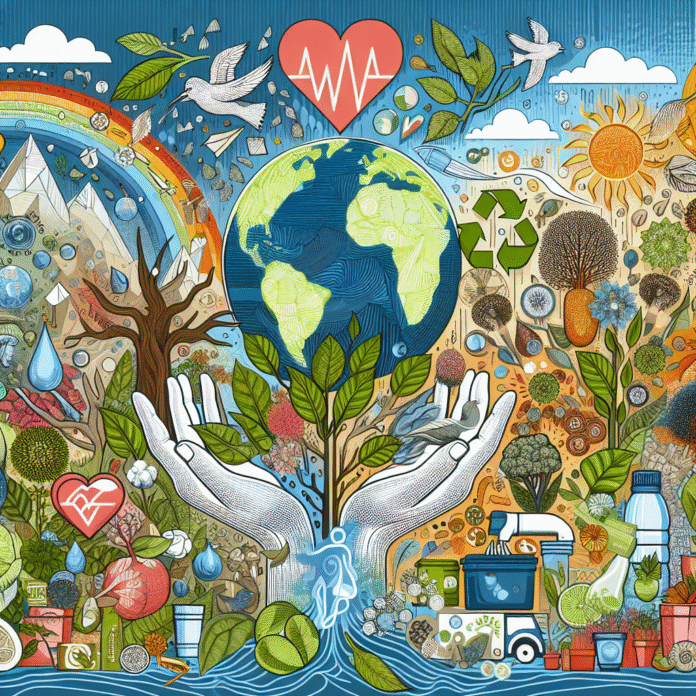Climate Change and Its Impact on Nature’s Health
Climate Change and Its Impact on the Health of Nature
Climate change is one of the most pressing issues facing our planet today, with profound implications for the health of natural ecosystems. As global temperatures continue to rise due to greenhouse gas emissions, the delicate balance of nature is increasingly disrupted. This article explores the multifaceted effects of climate change on the environment and highlights the interconnectedness of ecological health and human well-being.
Rising Temperatures and Ecosystem Disruption
The increase in average global temperatures has far-reaching consequences for various ecosystems. Warmer temperatures can lead to altered precipitation patterns, resulting in droughts in some regions and flooding in others. These changes disrupt habitats, threatening the survival of numerous plant and animal species. For instance, coral reefs, which are highly sensitive to temperature changes, are experiencing widespread bleaching events, leading to the decline of marine biodiversity.
Impact on Biodiversity
Biodiversity is essential for ecosystem resilience and the provision of ecosystem services, such as clean air, water, and fertile soil. However, climate change poses a significant threat to biodiversity. Many species are struggling to adapt to rapid environmental changes, leading to shifts in distribution and, in some cases, extinction. The loss of biodiversity not only impacts wildlife but also jeopardizes the livelihoods of communities that depend on these ecosystems for food, medicine, and other resources.
Effects on Human Health
The health of nature is intricately linked to human health. Climate change exacerbates air and water quality issues, leading to increased respiratory and cardiovascular diseases. Additionally, rising temperatures and changing weather patterns can facilitate the spread of infectious diseases. For example, warmer climates can expand the habitats of disease-carrying mosquitoes, increasing the risk of malaria and dengue fever.
Solutions and Mitigation Strategies
Addressing climate change requires concerted efforts at local, national, and global levels. Strategies for mitigating its effects include reducing greenhouse gas emissions through renewable energy adoption, enhancing energy efficiency, and promoting sustainable land use practices. Governments, businesses, and individuals can play a role in fostering a more sustainable future by supporting policies that protect the environment and investing in green technologies.
Community Engagement and Education
Raising awareness about the impacts of climate change on nature and health is crucial. Community engagement initiatives can empower individuals to take action in their own lives, whether through conservation efforts, sustainable farming practices, or reducing waste. Educational programs that emphasize the importance of ecosystems can foster a sense of stewardship and responsibility toward the environment.
The Role of Policy and International Cooperation
Effective policies at the governmental level are vital for implementing long-term solutions to combat climate change. International cooperation is essential, as climate change knows no borders. Agreements such as the Paris Agreement aim to unite countries in their efforts to limit global warming and promote sustainable development. Collaboration across nations can facilitate the sharing of knowledge, technologies, and resources needed to address this global challenge.
Conclusion
Climate change poses significant threats to the health of nature and, consequently, to human well-being. Understanding the interconnectedness of environmental health and human health is essential for developing effective strategies to combat climate change. Through collective action, education, and policy changes, we can work towards a sustainable future that preserves the health of our planet for generations to come.


